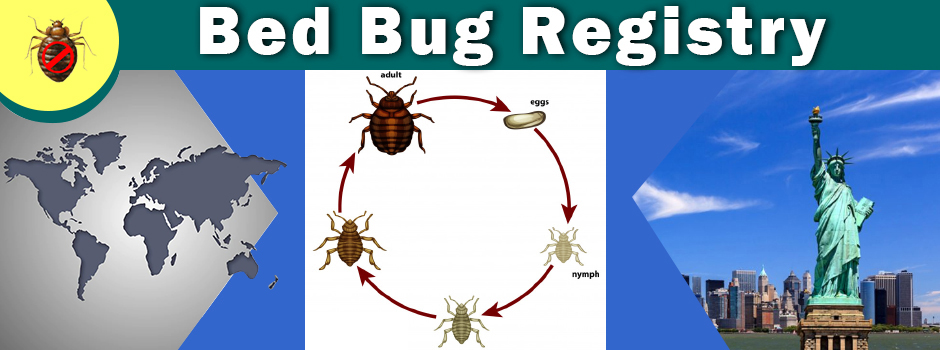Researchers are starting to explain the anxiety many victims feel.
Right now, everything I own is in garbage bags piled up in the middle of my kitchen and bathroom and filling my shower. It's been that way for a week and a half and will continue to be so for at least another week on top of that. If you live in a major city, you might know whats coming. If not, welcome to the hell that is bed bugs.
This isn't the first time I've had bed bugs. Nor the second. It's the third, and this time its taken two visits from the exterminators to (hopefully) rid our apartment of the tiny beasts. Luckily we were able to catch the bugs early before they got a real hold on the apartment. Unluckily, thats mostly because rather than mosquito-esque little bumps, my bites turn into hardened ping-pong ball sized welts that itch for over a week. So when we have bed bugs, I know pretty quickly. And each time everything goes into bags. I stop sleeping. I avoid furniture on the street. I refuse to enter libraries.
I used to joke that I had bed bug PTSD. Theres a certain kind of anxiety that the seemingly invisible biters incite. But in fact, it might not be a joke. Research is starting to show that bed bug infections can leave people with anxiety, depression, and paranoia. And thats normal. In fact, it would be weird for you not to be freaked out, says Stphane Perron, a doctor and researcher at the University of Montreal. If you have bed bugs, and if you dont care, thats not a normal reaction. You should be worried. I would consider it a normal reaction to a stressor.
Perron has published a number of papers on the psychological ramifications of bed bugs. In one study, he and his team looked at apartments that had been reported to the Montreal Public Health Department for unsafe conditions. Some of those units were infested with bedbugs, but not all of them. Perron and his team gave the tenants of these buildings a series of questionnaires that assessed all sorts of health impacts, including psychological ones. All told, 39 of the units had bed bugs, and 52 of them didnt. When they compared the psychological results between those two samplesa method that helps to control for factors that impact mental health like socioeconomic statusthey found that tenants with bed bugs were far more likely to report anxiety and sleep disturbances than those without.
Another study by medical entomologist Jerome Goddard at Mississippi State University examined posts on bed bug related websites like Bedbugger.com. When they compared those posts against a checklist of PTSD symptoms they found that 81 percent of people writing these forum posts were describing psychological and emotional effects often associated with the disorder, things like hyper-vigilance, paranoia, obsessive thoughts, and depression. One person scored high enough to actually be considered a PTSD patient, Goddard says. (The comparison they did here isn't diagnostic. In other words, Goddard can't actually diagnose anybody with PTSD from the results.)
In another study, researchers sent out questionnaires to seven different cities. They got 474 back. In the survey, they asked people to describe their reaction to the bites. Beyond the physical reactions, 29 percent of people said they suffered from insomnia, 22 percent reported emotional distress, and 20 percent said they had anxiety due to the bugs.
There are a number of reasons to take these preliminary studies with a grain of salt. For one, researchers dont know anything about the mental state of the participants before they got bed bugs. And thats important. In one case study that Perron published, a woman with a prior history of mental health issues got bed bugs and eventually committed suicide. The bed bug is a stressor like many other stressors, Perron says. For people who are vulnerable, it may result in having a pathological fear of bedbugs or even delusions of parasitosis, when a person falsely believes they are infested with bugs. So knowing the mental state of people before they were infected is key, and missing in these early reports.
It's early days for studies like these, and Goddard is the first to admit that they arent perfect. But they're a start. I think all these things sort of added together, suggest that at least bed bugs are associated with anxiety and sleep disturbance, he says. Now whether or not a person can truly have PTSD I dont know. And they do suggest that theres something particular about bed bugs that sets them apart from other biting insects like tics, fleas, mosquitos, and chiggers.
When I tell people I have bed bugs, they say things like, So, youre setting fire to everything you own, right? The EPA acknowledges the urge. There is no need to throw out all of your things, they assure visitors to their bed bug information page. But after weeks of garbage-bag living, the prospect of just lighting it all on fire and leaving doesnt seem so unreasonable. And several bed bug studies note the extreme lengths to which people go to get rid of the bugseverything from actually setting things on fire, to attempting to self-treat with loads of toxic chemicals. Even my exterminators are aware of the trauma the bugs incite. At the bottom of the two-page preparation guide for treatment, they write:
Originally posted here:
Bed Bug Madness: The Psychological Toll of the Blood Suckers

 Residence
Residence  Location
Location 
